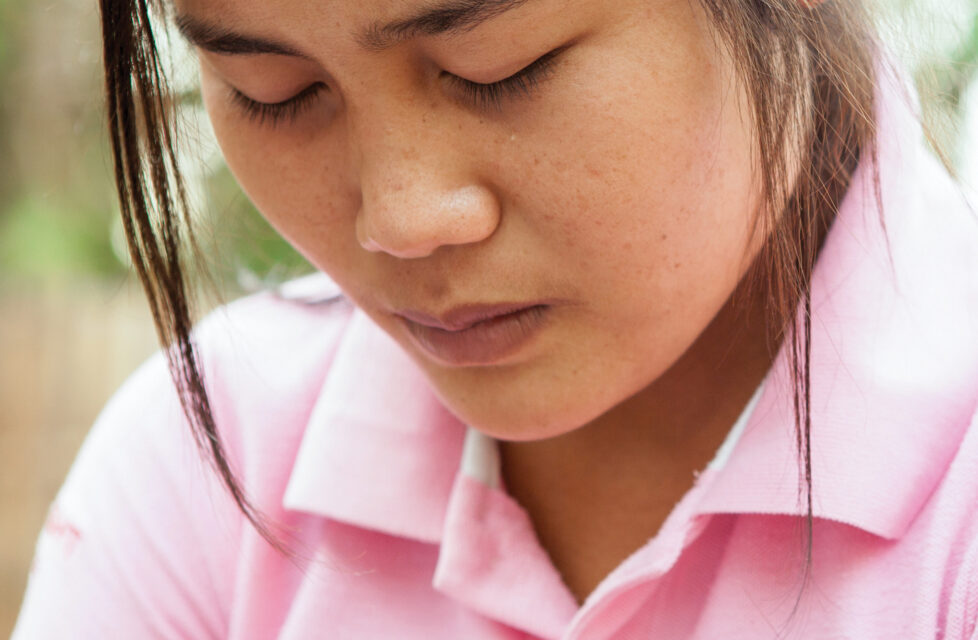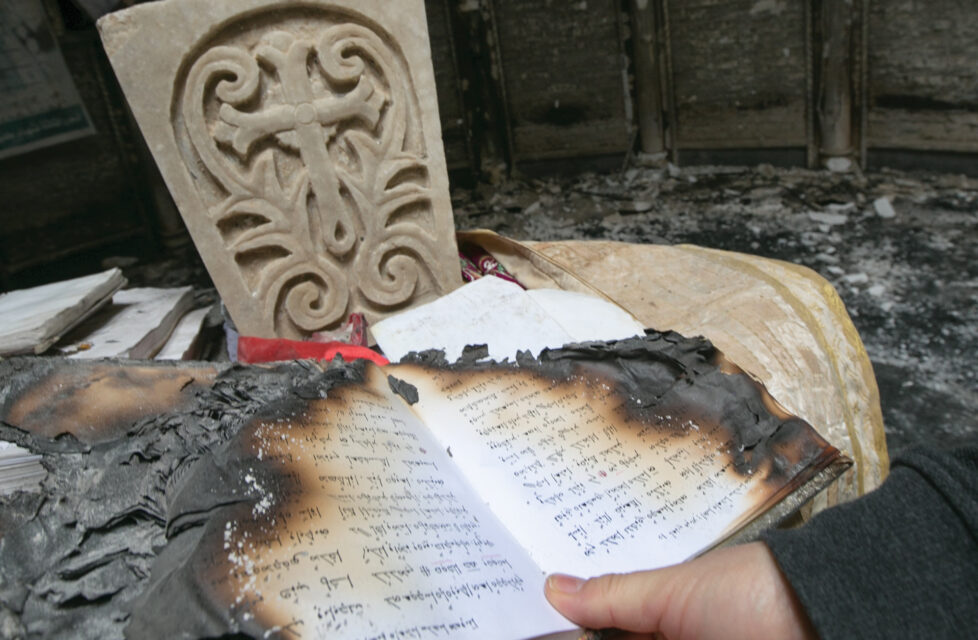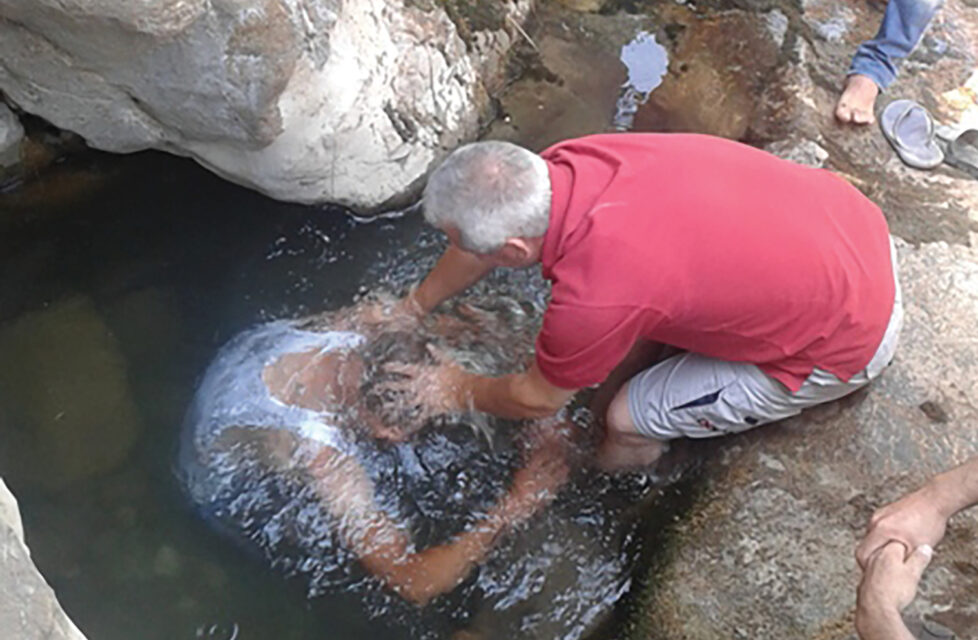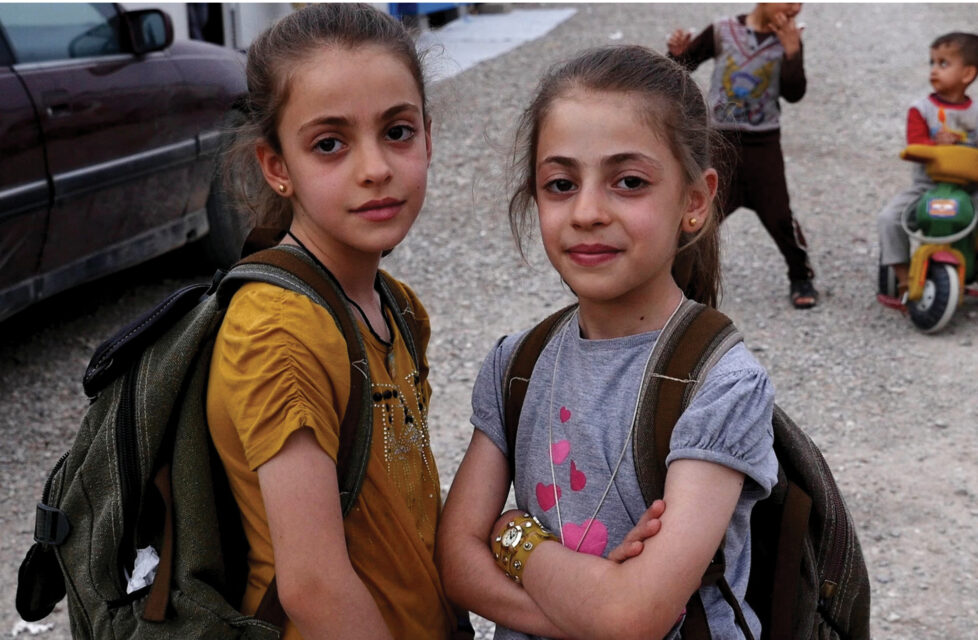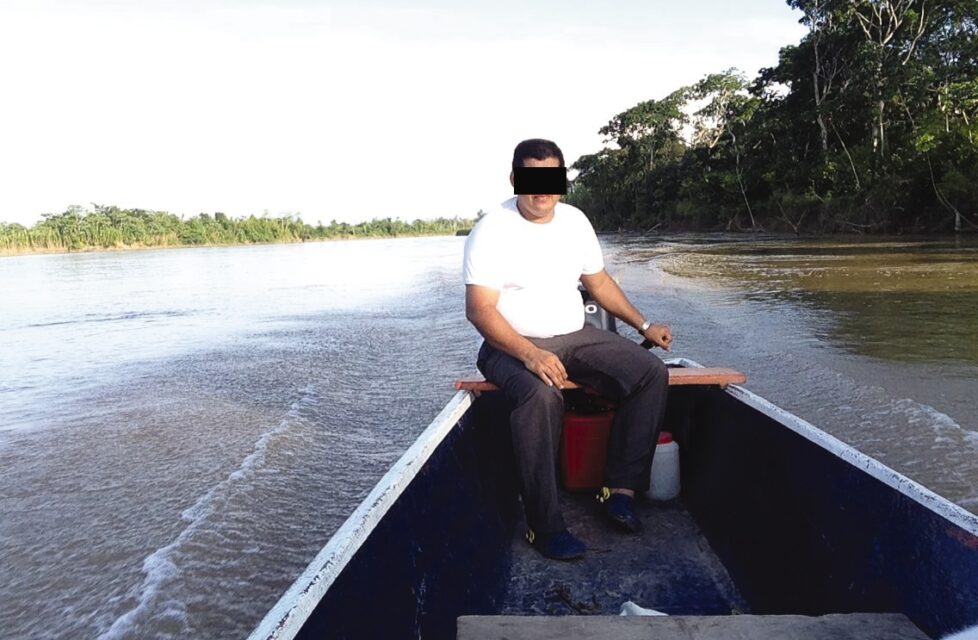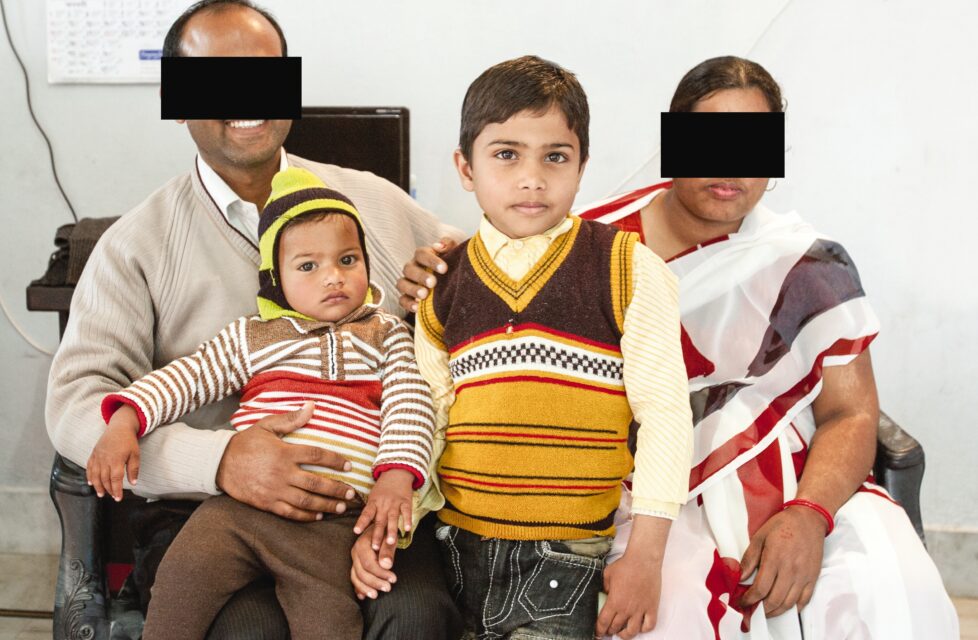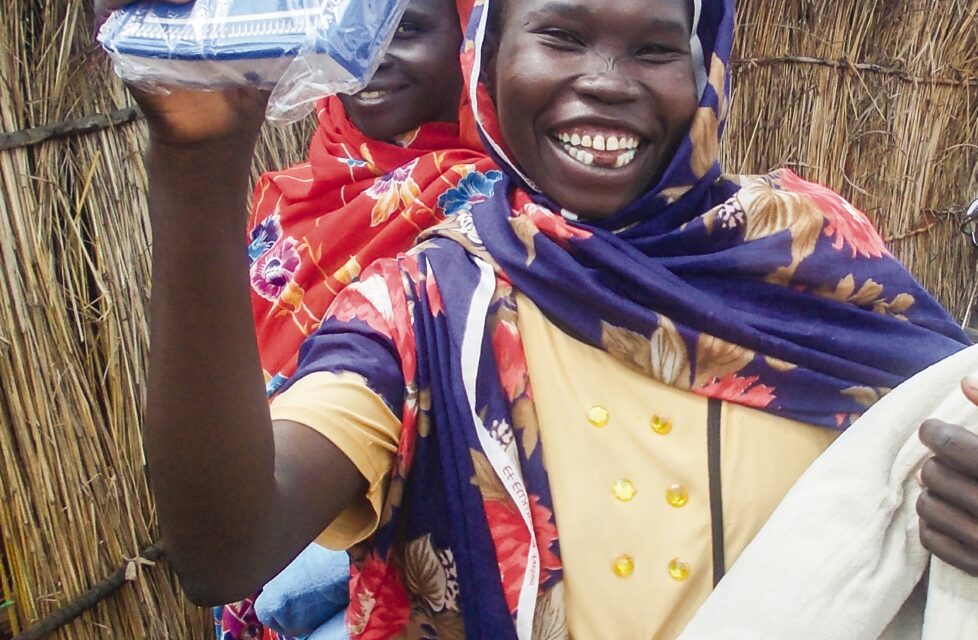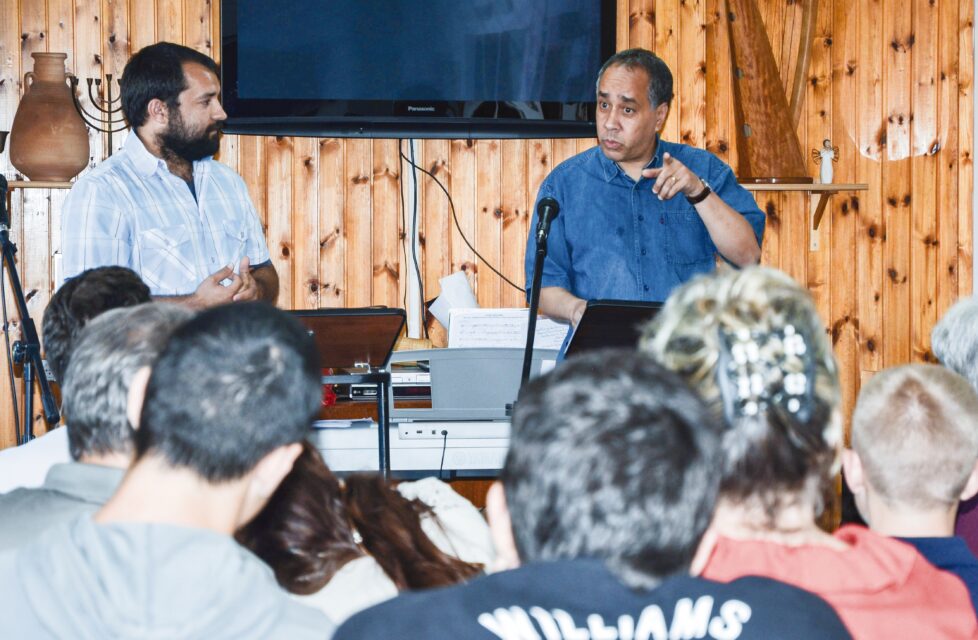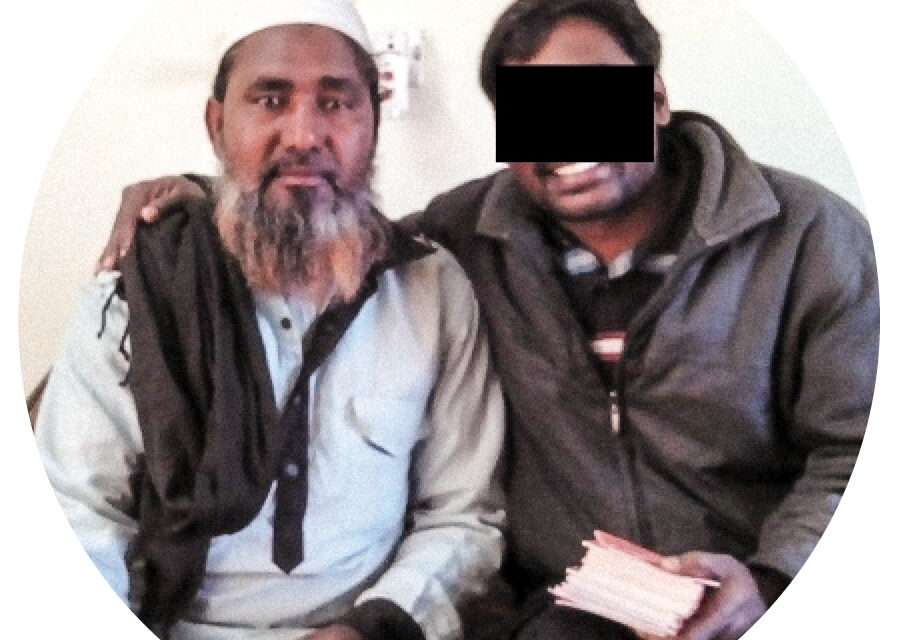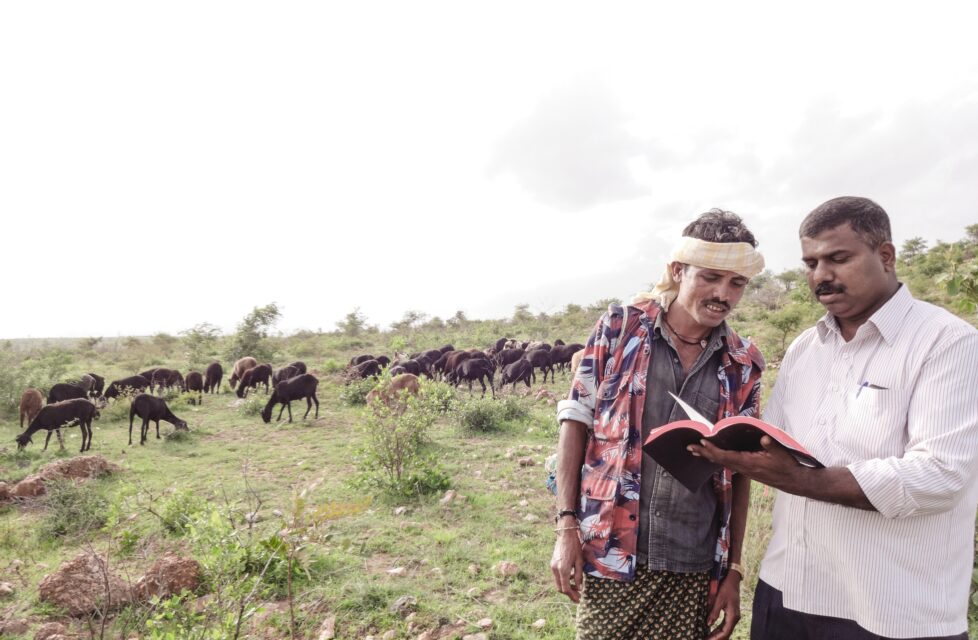Huddled in a small, smelly bathroom in the house church she was attending, Sonxi listened closely to muffled voices outside. She had been hiding in the bathroom ever since being warned that her parents were looking for her. She tried hard not to make a sound, but it wasn’t easy. Still, being able to attend church was worth the trouble. Sonxi’s parents hated her new Christian faith, but she knew they were just afraid because of the trouble it could bring their family. When she tried to tell them about Christ, they would say, “We can’t believe in this religion because we are afraid of the police. If there weren’t any police, we would believe in Jesus.” Eight Christian families lived in Sonxi’s small village in communist Laos, but she had never paid much attention to them and certainly never imagined she would become one of them. All she really noticed was that they were different from the other villagers. They didn’t gossip, they were humble, and they encouraged her when she talked to them. She had no interest in Jesus until one day when she discovered a small booklet lying on the ground as she walked through the jungle.
Read MoreHani was imprisoned by ISIS because of his Christian heritage. But it was only after his escape that he came to know Jesus. As members of the self-proclaimed Islamic State (ISIS) eagerly broke their Ramadan fast for the day by digging into large, round plates of rice, Hani, his brother and several other prisoners started running. They ran as hard as they could, hoping to reach the cover of some nearby hills while their captors ate. After reaching the hills, they called their families on a phone one of the prisoners had managed to conceal. “Tell the Peshmerga not to shoot!” they urged. “There are seven of us.” Their families then alerted the Peshmerga, the Kurdish militia protecting the city of Qaraqosh from ISIS invaders. Hani and the others knew the land well, and soon they were crossing the Peshmerga lines into the arms of their waiting families. Their 26-day ordeal was over. Kidnapped by ISIS Hani was a proud citizen of Qaraqosh, a Christian city about 20 miles from Mosul, Iraq’s second-largest city. The 50,000 Chaldean Christians in Qaraqosh still spoke Syriac, a dialect of the Aramaic language of Jesus, and traced their Christian heritage back to the first
Read MoreWorshipers stand shoulder to shoulder on the auditorium floor as musicians sing and play joyfully from the stage. The balcony is also crowded, and even more people cluster around doors and windows to join in worship. The most surprising thing about this packed service, however, is its location — it’s taking place in Muslim-majority Algeria, where religions other than Islam face tight government restrictions. As evidenced by this worship service, the restrictions haven’t hindered the Berber Christians living in northern Algeria. Within the last 30 years, the Berber people have reclaimed their heritage as the original inhabitants of the region, rejecting the language, culture and religion imposed on them by Arab Islamic invaders beginning in the seventh century. Having rejected Islam, many Berbers are now embracing Christianity. Both registered and unregistered Christian churches are growing exponentially in the region, some consisting of a handful of believers in a living room and others meeting in newly constructed church buildings with a complete church staff. Some of the churches VOM works with have even sent missionaries from their own congregations to share Christ with Algeria’s Arab population, the very people who have oppressed Berber Christians for centuries. Churches are allowed to meet
Read MoreWhen asked what she prays for, 11-year-old Myriam Behnam was quick to answer. “When I pray, I pray that God might help us to go back home,” she said, “and that the peace of God might come all over Iraq. And also, may God forgive ISIS.” Myriam, her 10-year-old sister, Zamarod, and their parents, Walid and Alice, fled their home near Mosul, Iraq, more than a year ago when the self-proclaimed Islamic State (ISIS) gained control of Mosul and the Nineveh plains. Since that time, the family has lived in the northern Kurdistan Region along with more than 1 million other displaced Iraqis. Life is not easy in the refugee camp, but Myriam doesn’t harbor any bitterness. “I will only ask God to forgive [ISIS],” she said in a March 2015 interview with SAT-7 TV. “Why should they be killed?” Myriam’s surprising forgiveness of ISIS reached millions after being broadcast on the Christian satellite TV station. Although it’s difficult to know how many people watched the interview on SAT-7, its five channels reach an audience of 15 million in North Africa and the Middle East. In addition, the video was copied digitally numerous times and went viral on social media,
Read MoreSimon and Sara were roused from sleep at 4 a.m. by shouts and banging on the door. Revolutionary Armed Forces of Colombia (FARC) guerrillas in black rubber boots and olive green fatigues dragged the couple out of their house in pouring rain and forced them to get on motorcycles. As Simon and Sara clung to the motorcycles, feeling the slap of rain on their faces and the splatter of mud on their legs, they wondered if they were being taken to their deaths. The small jungle town in rural Colombia where Simon, Sara and their five children live is accessible only by water. Houses are scattered along the network of rivers, and the only way to reach them is by boat. Colombians living in this remote area make their living through farming. Simon and his family had moved to the area four years earlier to share the gospel with those living in the isolated “red zone,” an area controlled by guerrillas rather than the federal government. He and another pastor work together, ministering in opposite ends of the river region. VOM provided Simon with a boat to help him in his ministry work, and he shares the boat with the
Read MoreWhen Pastor Yoshi unlatched the door of his home to see who was pounding on it, he immediately recognized the group of men standing before him. Their saffron-colored headbands along with the sticks and iron bars in their fists clearly identified the 10 men as members of the Vishva Hindu Parishad (VHP), a militant nationalist Hindu group known for beating and harassing Christians. Yoshi braced himself for the beating that was sure to come. Their visit that evening in late 2009 wasn’t totally unexpected, but the pastor hadn’t expected them so soon. Every Indian village has an informant who reports anti-Hindu activity to the Rashtriya Swayamsevak Sangh (RSS), an extremist military group, and the village VHP informant had visited their home in India’s northern Uttar Pradesh state earlier that day looking for Yoshi. Yoshi’s wife, “Aja,” had told the man her husband wasn’t home because he was out preaching. The Hindu activists were upset because a couple of weeks earlier, Yoshi had showed The JESUS Film to about 400 people in a rural village in Uttar Pradesh. Afterward, Hindu leaders accused Yoshi of being “anti-national” and an American agent, serious accusations from groups whose stated goals are to cleanse India
Read MoreOnnab stood next to the charred remains of her home. A Sudanese Air Force jet had just flown over her village and dropped a bomb that detonated near her house, destroying her family’s food supply and all their belongings. “Thank God my children were not in the house,” she said, grateful for their safety. But the loss of Onnab’s earthly home and possessions ultimately led her to the greatest eternal gift. As a Muslim living in the Nuba Mountains of Sudan, Onnab had heard about Jesus and even visited a church in her village. But when her husband and his family learned that she had gathered with “infidels,” they were furious and insisted that she never again visit a Christian church. “I tried several times to change to Christianity,” Onnab said, “but it was not easy for me.” If her husband even heard that Onnab had attended church or talked to other Christians, he would beat her. Still, her hunger for Christ remained. Just two months before her home was bombed, her husband abandoned her and their children. After Onnab’s home was destroyed in the bombing, she gathered her six children and began her journey to the safety of a
Read MoreThe West Bank city of Bethlehem adjoins Jerusalem, but the cities are separated by a huge wall designed to protect against terrorist attacks. Bethlehem and the rest of the West Bank are partially governed by the Palestinian Authority (PA), while Israel controls the roads and Israeli settlements. Persecution of Christian converts in the West Bank comes both from family members and, sometimes, from the PA. Saif, a Christian convert from Islam who lives in the Bethlehem area, was imprisoned by the PA because of his faith. He came to know Jesus through a group of Messianic Jews in 2004, after studying the Bible for four years and comparing it with the Quran. He was 34 and married with five children. Saif’s wife was resistant to the gospel and thought of leaving him after his conversion. But Saif made his priorities clear to her. “You choose,” he told her. “I am willing to leave the house for you, but I can’t come back to Islam.” Saif’s new faith was further tested two days after he was baptized. “Jesus appeared to me and told me he wanted me to evangelize in His name,” he said. Without hesitation, Saif quit his work as
Read MoreJust before Hadi was beaten for sharing the gospel in India, he witnessed God working in the hearts of his friends. While at a birthday party on April 19, 2015, he began talking to others about Jesus. About 30 people at the party — including the man celebrating his birthday — were eager to learn more about Christ. But 20 minutes into the discussion, a group of Hindu militants showed up at the party and interrupted Hadi. “Are you a Christian?” one asked. “Yes,” Hadi replied. “You are changing these people’s religion,” the militant said. “We should finish [you].” Hadi clutched his Bible to his chest, but they ripped it out of his hands. “You will not see tomorrow’s sun,” another member of the group told him. The militants began beating him in the chest and kicking him in the groin. Hadi’s friend, Sahib, tried to stop the attack, and they asked him if he was a Christian, too. When he told them he was, they hit Sahib in the head with a club and beat him on the chest with a large piece of wood. Another attacker pulled a knife and slashed Hadi on the cheek, shoulder and back.
Read MoreChandrashekar stood in a simple home in a small Indian farming village and prayed with a couple who had come to Christ just four months earlier. Brother Bala and Sister Kuskuma were the only Christians in their village, and they were surrounded by 40 families — all devout Hindus. With no church in their village, their only source of fellowship and spiritual nourishment was Chandrashekar, who lived 15 kilometers [a little over nine miles] away. After sharing a message of abiding in Christ from John 15 and Psalm 1, Chandrashekar prayed for the couple. He prayed that they would boldly share the gospel with fellow villagers, and he prayed that their relatives would also come to know Christ. Since Chandrashekar had to visit a family in another village before returning home, he thanked Brother Bala and Sister Kuskuma, packed his Bible and left their home. Chandrashekar hadn’t traveled far down the road when he was confronted by a mob of 40 men, some armed with sticks. “Did you visit Hindu people’s houses to convert them?” they demanded. “I visited their house to pray,” he replied. That was enough evidence for the mob. They grabbed Chandrashekar’s Bible and tore it up,
Read More
